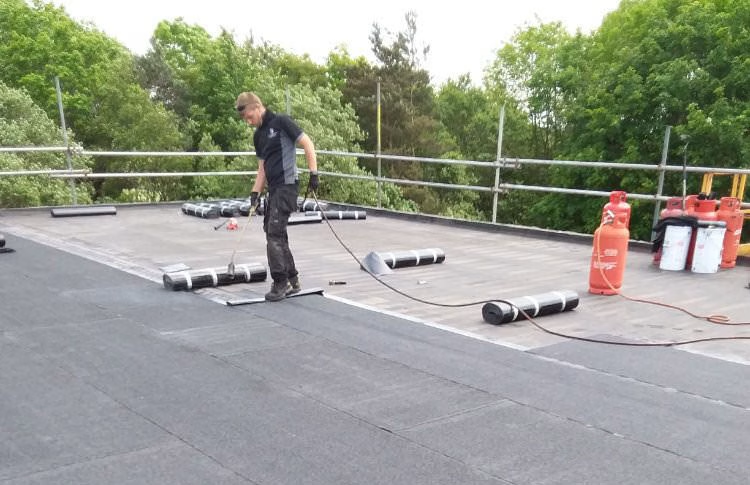Industrial Roofing Services install, repair, and maintain roofs of all types on commercial and industrial buildings. These are usually large structures, such as factories, warehouses, plants, or workshops. The size and purpose of such buildings require that the roofs be strong, waterproof, and often designed to carry heavy-duty equipment or insulation.
There is quite a big difference between roofing in industrial buildings and those meant for residential purposes. Materials, technologies applied, and even special security measures differ. Such companies usually specialise in more extensive projects and understand the challenges of keeping business property secure, watertight, and adhering to safety standards.
Why Industrial Roofing Is Important
The roof of any industrial building is one of its most important elements in protecting the structure and its contents. It will block the wind, rain, or any weather conditions, contributing to temperature regulation and energy consumption. A poorly constructed or neglected roof is prone to water damage, loss of heat, or even jeopardising the safety of people working inside the building.
A well-built industrial roof can also help businesses avoid costly repairs in the future. Regular checks and proper maintenance mean that problems can be found early before they grow into more serious issues. When executed properly, roofing work can extend the building’s life and reduce running costs in the long run.
Types of Industrial Roofing Work
Industrial roofing services cover a wide array of jobs, but one of the most common is roof installation for new buildings. This includes planning the right materials to fit insulation and ensuring that the roof is weatherproof and safe. New roofs must also be designed based on local building rules and regulations.
Other aspects of the work are repairs: roofs over time, due to weather, age, and wear and tear, suffer damage. These are sections that roofers can fix; leaks or loose fittings can be repaired before further damage occurs. Full replacements are done when buildings are very old or when their roofs no longer meet safety standards.
Maintenance is equally important. Many companies schedule periodic roof inspections to check for damage, blocked gutters, or weak spots. Such checks serve to keep the building safe and avoid sudden problems that may disrupt business.
Choosing the Right Roofing Contractor
Finding a reliable roofing company is an important aspect of any industrial project. Not all roofers are trained to work on industrial buildings, so it’s crucial to pick a team that has experience with large-scale roofing work. A good contractor should be able to show examples of past jobs and provide references from other businesses.
They should visit the site, advise, and provide a clear quote before any work is started. It is also important to check that they have the correct insurance and adhere to health and safety legislation. Industrial roofing involves working at heights, and strict safety procedures are in place, not only to protect the workers but also people around the building.
Communication is also vital. A professional roofing team should let you know what is happening at every step, be it in the planning or completion stage. Whether the job is big or small, clear updates help to avoid delays or confusion.
Long-Term Value to Businesses
Investing in high-quality Roofing Services can yield long-term value for the business. A safe and energy-efficient roof minimises running costs apart from cutting down frequent repairs. It protects your staff, equipment, and stock from damage, thus helping to maintain seamless activities in your firm. For businesses that rely on their premises every day, having a strong, reliable roof isn’t just a practical need — it’s an integral part of staying open, safe, and planning for the future.
